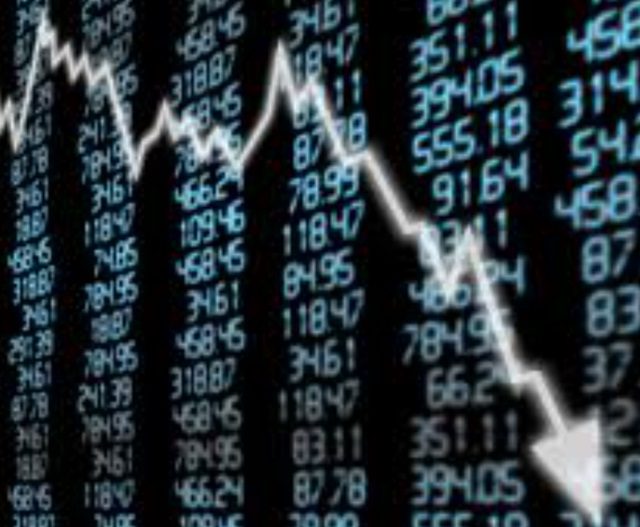BTN News: On Monday, global financial markets experienced a significant downturn, driven by escalating fears of a potential economic slowdown in the United States. Investors, alarmed by the latest economic indicators and the ripple effects of geopolitical tensions, began selling off their assets in droves, leading to sharp declines across various stock indices. These indices, which serve as vital indicators of market health, reflected the widespread anxiety gripping the financial world.
The S&P 500, which tracks the performance of 500 of the largest publicly traded companies in the U.S., saw a steep drop of 4% within the early hours of trading. Meanwhile, the Dow Jones Industrial Average, a key benchmark that includes 30 major U.S. industrial companies, plummeted by 1,197 points, equating to a 3% loss. The situation was even more dire for the Nasdaq, an index heavily weighted towards technology stocks, which suffered a dramatic 5.5% decline. This drop left the Nasdaq a staggering 15% below its all-time high set just last month.
The fear that gripped U.S. markets quickly spread across the globe. Japan’s Nikkei 225, a leading index in Asia, had its worst performance since 1987, plunging by 12.4%. Similarly, South Korea’s Kospi index tumbled by 8.8%, while European markets faced losses of around 3% across the board. Even traditionally safe-haven assets like gold, which investors typically flock to during times of uncertainty, were not spared, with prices dropping nearly 2%.
The catalyst for this widespread market turmoil was a recent report showing that U.S. companies had hired fewer workers than expected. This disappointing jobs data exacerbated existing concerns about a potential economic slowdown, especially in light of the Federal Reserve’s aggressive interest rate hikes aimed at combating inflation. There is growing apprehension that these higher interest rates may have cooled the economy more than intended, leading to reduced consumer spending and lower corporate profits.
Adding to the market’s woes were sharp declines in the stock prices of major technology companies, including Apple and Nvidia. These tech giants have been a driving force behind the market’s gains in recent years, so their sudden drop sent shockwaves through the financial system. Compounding these economic and corporate concerns is the ongoing conflict between Israel and Hamas, which has the potential to disrupt global oil supplies and further destabilize markets.
The convergence of these factors has created a perfect storm of uncertainty, leading to a dramatic sell-off in markets worldwide. As investors continue to grapple with these challenges, the outlook for the global economy remains uncertain, with many fearing that the worst may still be yet to come. The situation underscores the fragility of the current economic environment and the interconnectedness of global financial markets. Investors will be closely watching for any signs of stabilization or further deterioration in the days and weeks ahead.


